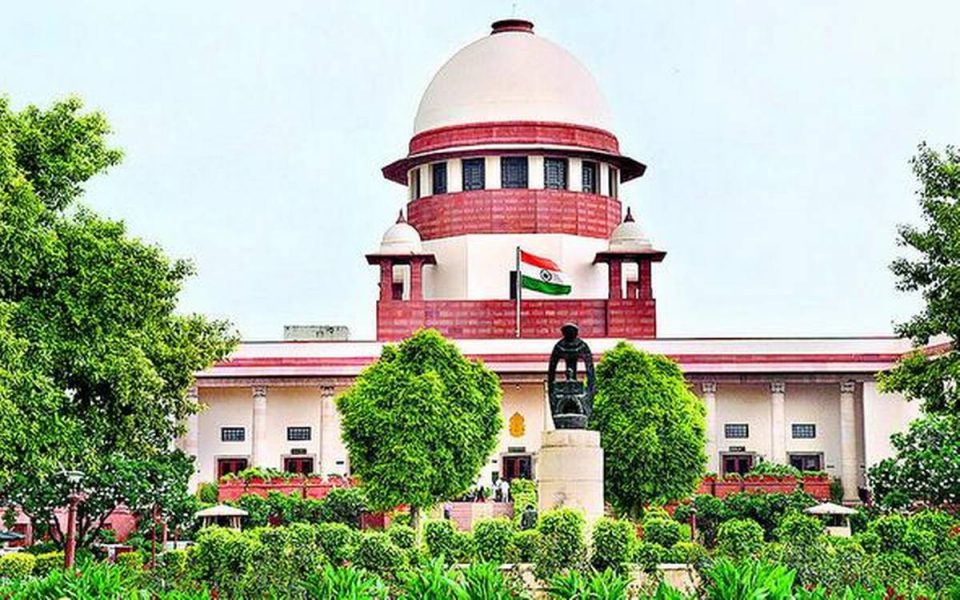
Supreme Court upholds 10% EWS quota in govt jobs, education

The Supreme Court on Monday (November 7) upheld the 10% reservation to economically weaker sections (EWS) persons in admissions and government jobs.
It was a 3:2 verdict in the apex court on a batch of pleas challenging the validity of the 103rd Constitution amendment.
Also read: Critics fume as TN varsity marks EWS quota in Centre-sponsored course
A five-judge Constitution bench headed by Chief Justice Uday Umesh Lalit delivered the verdict on the matter.
CJI Lalit said there are four different judgments on pleas challenging EWS quota.
Justice Dinesh Maheshwari upheld it, saying it does not violate the basic structure of the Constitution. Justices Bela M Trivedi and JB Pardiwala also upheld it.
Justice S Ravindra Bhat dissented. Justice Lalit concurs with Justice Bhat.
“Reservation is an instrument of affirmative action by State so as to ensure all inclusive approach. It is an instrument not only for inclusion of socially and educationally backward classes…Reservations for EWS does not violate basic structure on account of 50% ceiling limit because ceiling limit is not inflexible,” the majority judgment by CJI Lalit and Justice Maheshwari said, according to a report on Live Law.
Justice Trivedi said, “The impugned amendment has to be treated as an affirmative action by the Parliament for the benefit of EWS class. It cannot be said to be unreasonable classification…Treating EWS as separate class would be a reasonable classification. Just as equals as unequals, unequals cannot be treated equally. Treating unequals equally violates equality under the Constitution…The amendment creates a separate class of EWS. The exclusion of SEBCs cannot be said as discriminatory or violative of Constitution.”
“Our constitution does not permit exclusion and this amendment undermines the fabric of social justice and thereby the basic structure. This amendment is deluding us to believe that those getting social and backward class benefit is somehow better placed. This court has held that 16(1) and (4) are facets of same equality principle. The characterization of excluding the poor of SEBCs is incorrect. What is described as benefits cannot be understood as free pass, it is a compensatory mechanism to reparate…The exclusion is based on social origin which destroys the equality code,” Justices Lalit and Bhat said.
The top court heard as many as 40 petitions and most of the pleas, including the lead one filed by ‘Janhit Abhiyan’ in 2019, challenged the validity of the Constitution Amendment (103rd) Act 2019.
The apex court had on September 27 reserved the verdict on the legal question of whether the EWS quota violated the basic structure of the Constitution after hearing a battery of senior lawyers, including the then Attorney General K K Venugopal and Solicitor General Tushar Mehta, in the marathon hearing that had lasted for six-and-half-day.
Also read: EWS quota limit for NEET-PG will be ‘revisited’, Centre tells SC
Academician Mohan Gopal had opened the arguments in the case before the bench, which also comprised justices Dinesh Maheshwari, S Ravindra Bhat, Bela M Trivedi, and J B Pardiwala, on September 13 and opposed the EWS quota amendment by terming it as “deceitful and a backdoor attempt” to destroy the concept of reservation.
The Centre, through the 103rd Constitutional Amendment Act, 2019, introduced the provision for Economically Weaker Sections (EWS) reservation in admissions and public services.
Also read: SC fixes 3 issues for adjudication on pleas challenging Centre’s 10 pc EWS quota
Earlier, the Centre, in 2019, had also told the apex court that its law, granting a 10-per cent quota for Economically Weaker Sections, was brought in to promote “social equality” by providing “equal opportunities in higher education and employment to those who have been excluded by virtue of their economic status”.
The Lok Sabha and the Rajya Sabha cleared the bill on January 8 and 9 in 2019 respectively and it was then signed by then President Ram Nath Kovind. The EWS quota is over and above the existing 50% reservation to SCs, STs, and Other Backward Classes (OBCs).
You can't add multiple events in the same post, page or custom post type.

